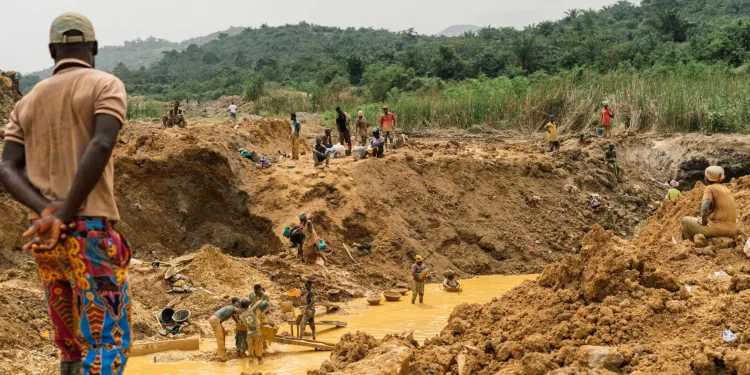Ghana’s Catholic Bishops Demand Urgent Action to End Illegal Mining and Environmental Degradation
The Ghana Catholic Bishops’ Conference (GCBC) has once again raised the alarm over the devastating environmental consequences of illegal small-scale mining, known locally as galamsey, which continues to wreak havoc on the country’s natural resources. The Bishops have called for decisive government action, citing the ongoing degradation of Ghana’s water bodies, agricultural land, and rural communities as a national crisis.
The GCBC’s latest appeal underscores a broader plea for moral and political accountability, framing the battle against galamsey as essential not only for environmental sustainability but for the country’s socio-economic future.
Escalating Environmental Crisis
In their statement, the Bishops warned that Ghana’s ecosystems are under severe threat due to the widespread practice of illegal mining. The contamination of key water sources, including the Pra, Ankobra, and Birim rivers, has made them unsuitable for drinking and agriculture, leaving communities in dire straits. The Ghana Water Company’s recent report revealed alarming pollution levels, with water turbidity exceeding safe limits by over sixfold in some regions. The Bishops stressed that these conditions are having a knock-on effect on local livelihoods, particularly for farmers whose crops depend on clean water for irrigation.
Agricultural lands are also being devastated by galamsey operations, which often involve the reckless excavation of land with little regard for environmental protection. The destruction of cocoa farms and other key agricultural assets is undermining food security, especially in regions heavily dependent on farming.
“The future of Ghana’s farming economy is at stake,” the GCBC noted, pointing out that the environmental damage is not only an ecological disaster but a direct threat to the nation’s economic stability.
Public Health Concerns
Illegal mining activities are further exacerbating public health challenges, particularly through the use of toxic chemicals like mercury. These substances, used to extract gold, contaminate the soil, water, and food supply, creating long-term health risks for local populations.
The Bishops noted an alarming rise in respiratory and neurological disorders, stillbirths, and physical deformities in mining communities, directly linked to the pollutants released by galamsey operations.
The GCBC described these health hazards as a moral failing on the part of both illegal miners and those in positions of power, calling for immediate intervention to prevent further damage. “We cannot allow these health crises to continue unchecked,” they stated.
Weak Governance and Corruption
Despite Ghana’s existing environmental protection laws, enforcement has been inconsistent, undermined by corruption and political inertia. The Bishops specifically criticized the lack of accountability among government officials and traditional leaders, many of whom they accuse of being complicit in illegal mining operations.
“Ghanaians can no longer tolerate the government’s lip service in fighting galamsey,” the statement read, urging authorities to act decisively.
A Call for Unified Action
The Bishops’ Conference called for a comprehensive response, urging all sectors of society—government, civil society, traditional leaders, and the media—to join forces to combat illegal mining. They proposed a multi-faceted approach, including the enforcement of environmental regulations, investment in alternative livelihoods for miners, and public awareness campaigns on the dangers of galamsey.
They also called for the restoration of degraded lands and polluted water bodies, and urged mining companies to adopt sustainable practices. “Mining must be done responsibly, and with strict adherence to environmental standards,” the GCBC said, emphasizing that protecting Ghana’s natural resources is a shared responsibility.
As the country approaches the 2024 elections, the Bishops also implored political candidates to make clear commitments to addressing the issue, stating that the future of Ghana’s environment, economy, and public health depends on it.
“Now is the time for action,” the Bishops concluded, “before the damage becomes irreversible.”








